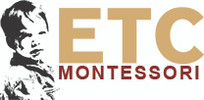
The benefits of Montessori early childhood education
The Montessori model, developed by Italian physician and educator Dr. Maria Montessori, has become one of the most respected and well-known approaches to early childhood education. Rooted in a child-centered philosophy, the Montessori method emphasizes self-directed learning, exploration, and independence, creating an environment that nurtures children's innate curiosity and drive for knowledge. This article delves into the benefits of Montessori early childhood education, examining how this unique approach fosters cognitive, social, emotional, and physical development, setting the stage for lifelong success.
Physical Development
Physical development is an integral component of Montessori early childhood education. Montessori classrooms incorporate specially designed materials and activities that promote fine and gross motor skills, balance, and coordination. This focus on physical development is essential for building a strong foundation for academic and life skills.
Montessori education also recognizes the importance of play-based learning in fostering creativity, problem-solving, and teamwork. Through purposeful play, children learn to express themselves, take risks, and engage with their peers, honing essential skills for future success.
Cognitive Development
At the core of the Montessori model is the belief that children learn best through active, hands-on experiences. Montessori classrooms are designed to stimulate curiosity and exploration, featuring carefully selected materials that promote cognitive development. Children are encouraged to engage with these materials at their own pace, allowing them to develop a deep understanding of various concepts and skills.
This self-directed approach to learning fosters a strong sense of agency and confidence, helping children become independent, critical thinkers. Research has shown that Montessori-educated children often exhibit advanced language, literacy, and mathematical abilities compared to their peers in traditional educational settings.
Moreover, the Montessori method's emphasis on mixed-age classrooms allows children to learn from their peers, enhancing their understanding of complex concepts and promoting cooperative learning. This collaborative environment fosters intellectual growth and helps to bridge achievement gaps between children of different backgrounds and abilities.
Social and Emotional Development
Social and emotional development is another crucial aspect of Montessori early childhood education. The Montessori model places a strong emphasis on creating a respectful, supportive community where children can develop essential interpersonal skills, such as empathy, cooperation, and communication.
Through collaborative learning experiences and the guidance of trained Montessori educators, children learn to navigate social situations, work through conflicts, and form healthy relationships. This foundation of social and emotional skills is essential for success in both personal and professional spheres of life.
Additionally, Montessori education encourages emotional regulation and self-awareness by fostering a supportive, non-competitive environment. Children are given the freedom to explore their interests and emotions, allowing them to develop a strong sense of self and resilience, which is vital for managing stress and overcoming challenges.
Long-Term Benefits
The Montessori approach to early childhood education yields considerable long-term benefits. Studies have shown that Montessori-educated children often excel academically and socially, displaying enhanced creativity, problem-solving abilities, and emotional intelligence. These skills are vital for navigating the complexities of the modern world and achieving success in various fields.
Furthermore, Montessori graduates are more likely to demonstrate intrinsic motivation, a love for learning, and a strong sense of personal responsibility. These qualities contribute to the development of well-rounded, compassionate, and engaged citizens, capable of making meaningful contributions to society.
From an economic standpoint, investing in Montessori early childhood education can generate substantial returns in the long run. Improved academic performance, reduced dropout rates, and increased participation in higher education are just a few of the potential outcomes that can bolster economic growth and promote social well-being.

